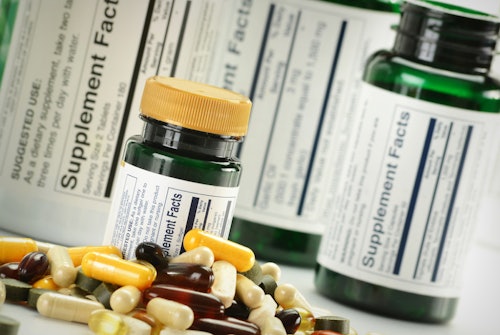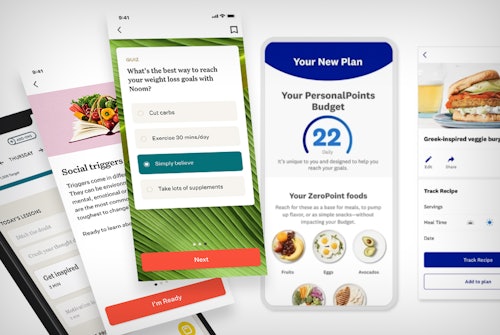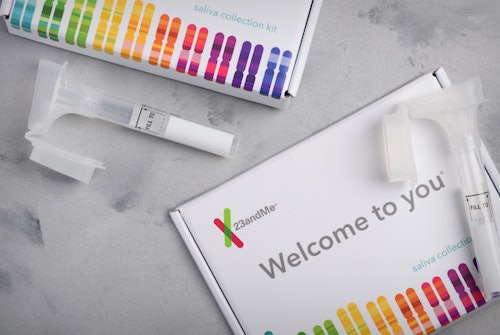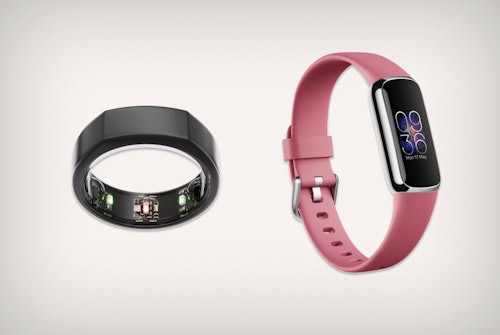Health, Wellness, & Medical Products In Depth
United States Health & Medical Scam Statistics 2020
Source: 2019-20 Consumer Sentinel Report
Health and wellness is something that impacts all of us. When buying health products, going to the hospital, or even simply seeking wellness advice, we must trust the source and verify that the information is correct.
We help you put your health first. We review health products, review fitness trends, tell you the truth about diets and supplements, and even warn you about new scams to watch out for that target this industry.
Healthcare Scams
Getting the correct type of healthcare or health insurance can be confusing. Add to this that many people are anxious about their health, and you have a perfect target for scammers. According to the FTC, almost 90,000 reports of scams involving healthcare in 2021 resulted in over $17 million in total loss.
There are many varieties of healthcare scams. The common denominator is that a scammer will use your anxiety about your health against you to trick you into giving them money for fake products or services or getting you to expose personal details so they can steal your identity.
Warning Signs of Healthcare Scams
Healthcare is costly. Scammers know this and will use a lot of tricks to convince you to buy insurance or medical products from them. Here are some of the red flags to be on the lookout for. If you notice any of these, you could be dealing with a scammer.
- A salesperson uses high-pressure sale tactics to offer you a low-cost healthcare plan and says you must sign up immediately or lose out.
- You are asked for personal information like a Social Security number to get a healthcare quote.
- You are asked to pay a fee for help with the Health Insurance Marketplace.
- You are asked to pay a fee for a new Medicare card.
- An online advertisement or door-to-door salesperson tries to sell you a COVID-19 test.
- You receive a text message claiming to be from the government that you never requested.
- You are offered fake COVID-19 vaccination records.
- You are offered deep discounts on prescriptions or supplements and are told you must act immediately to get the deal.
COVID-19 Scams
The scammers jump on any news about COVID-19 and use it to create new scams to trick unsuspecting victims out of money. In one type of scam, fake COVID-19 testing kits are sold via the internet or door-to-door. In another, people are being charged for in-person tests when they should be able to get one for free.
Scammers are also selling fake COVID-19 vaccination records requiring you to enter personal information, including your Social Security number, into a phishing website, which the scammer will then use to steal your identity.
In another COVID-19 scam, you get a text message claiming to be from the government. The message will say that you need to validate your vaccination status by following a link. The link will take you to a fake government phishing website where there will be a form to enter personal information. Once you enter your data on the site, the scammer will steal your data.
Fake Health Insurance Scams
In one type of fake health insurance scam, the scammers will try to sell you an insurance policy that isn't real either to steal your money or to steal the data they will request from you to start your "policy."
In another type, you will be told you are purchasing insurance, but you are actually buying a medical discount plan that doesn't meet the minimum requirements of the Affordable Care Act.
Government Imposter Scams
In this scam, a scammer claiming to be representing a government agency, like Medicare or the Social Security Administration (SSA), will ask you for personal details and information about your healthcare coverage. They will then claim that you need to sign up for the health insurance they are offering, or you will be fined and possibly go to jail. But this is only a scare tactic.
Fake Drug/Supplement Scams
Many people have turned to online pharmacies because they are convenient and can save you money. Unfortunately, scammers have taken advantage of this by creating fake pharmacy sites with deep discounts on either fake or non-existent drugs. These sites may even take orders without a prescription.
All these sites will do is steal your money. But, even if you get the products in the mail, they could harm your health.
Other scammers create websites selling actual products but then claim that their supplements are miracle cures and can cure anything from COVID-19 to AIDS. But these claims are never backed by clinical studies.
How to Beat a Healthcare Scam
If you notice any of the red flags of a scam involving healthcare, well-being, and medical products, make sure to use the tips below to ensure you don't become a victim of the scam:
- Always use a trusted source like a .gov site or state marketplaces to compare health insurance plans, pricing, and coverage.
- Research any company that offers healthcare coverage before signing up.
- Make sure the plan a company is offering is actually insurance. You can check with your state insurance commissioner's office.
- Hang up on a caller if they claim to be from Medicare or the Social Security Administration. They will never call you directly.
- Don't click on links in texts, emails, or social media messages. If you need to check your accounts, visit the official site yourself.
- Never give your personal or sensitive information to someone who calls on the phone.
- Always buy your prescriptions and supplements from a trusted source in the United States.
- Always do research before trying a miracle cure because chances are it is not a cure at all.
How to Recover from a Healthcare Scam
If you are a victim of one of these scams, you can do a few things to ensure that the scammer gets caught and that fewer people become victims in the future. Sometimes, you may also be able to get some or all of the money you lost back.
Document the Scam
It is essential to document the scam to provide complete information about the fraud to the authorities. Save emails, letters, and text messages you receive from the scammer and take notes on any conversation you had with them while the details are fresh in your mind.
Contact the Authorities
You will want to report the scam to the authorities. Here are some places to start:
- Contact the Federal Trade Commission (FTC).
- Report the scam to the FBI's Internet Crime Complaint Center.
- Report it to your state's Attorney General.
- Report it to your local police department.
- If the scam involved Medicare, contact them at 1-800-MEDICARE.
Contact Your Bank or Credit Card Company
You should also contact the bank or credit card provider involved if fraudulent charges were made to your account. Depending on the scam, you can sometimes get the charges reversed if you send money to a scammer.
You can often dispute and reverse fraudulent charges made with your credit or debit card because many card companies offer fraud protection. At the very least, you can prevent any future debits to your account.
Block the Scammers
Once you have documented the scam and provided the details to authorities, block the scammers from contacting you by marking the email, text, or phone number as spam.
Protect Your Credit History
If you gave the scammer any personal information, especially your SSN, you need to protect your credit. You can contact any one of the three credit bureaus and request that they place a fraud alert on your credit. This will require anyone using your information to apply for credit to provide proper identification.
Scams Relating to Health, Wellness, & Medical Products

How to Avoid CBD Scams & Buy the Right CBD Oils
With many people opting for CBD products as a natural alternative to prescription drugs, it's important to know what to look for in CBD oils and other cannabinoids products.

Rebel Wilson Does NOT Endorse Diet Pills or Gummies
Sketchy diet pill companies are at it again, using Rebel Wilson's name to falsely endorse their weight loss products.
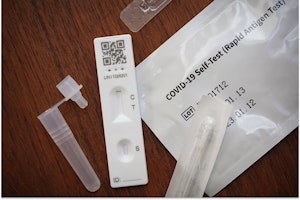
Be On Alert for Fake COVID-19 Tests That Rip You Off
Need to get tested? Only get tested at healthcare facilities or pharmacies, or buy at-home tests that are FDA-approved.
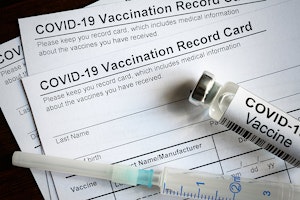
Scammers Selling Fake COVID-19 Vaccine Cards Want to Steal Your Identity
Using a fake COVID-19 vaccination card is not only illegal, but it can lead to having your identity stolen—it's not worth it.
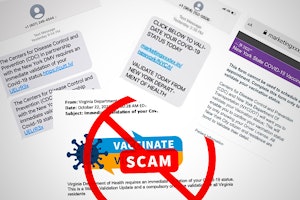
Received a Text/Email Asking You to Validate Your COVID-19 Status? It's a Scam
Scammers are impersonating government departments in an attempt to steal your information in this new COVID-19 scam.
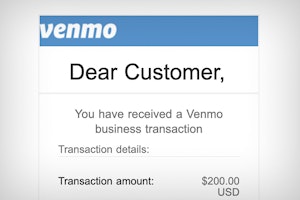
Selling on Facebook Marketplace? Beware of Fake Venmo Emails
Scammers are sending fake Venmo emails to Facebook Marketplace sellers in an attempt to steal login information and money.
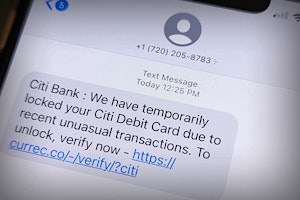
Citibank Text Message Scam: Locked Debit Card Alert Is Fake
If you've received a locked debit card text message from Citibank, it's likely a scam. Don't click on the link and delete the text message.
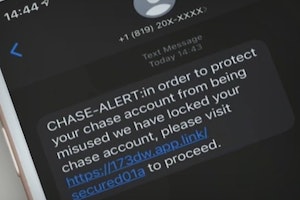
Real Chase Fraud Text Alert or Scam Message?
If you receive a text message from Chase Bank, don't click on any links or call the phone number listed—it could be a scam designed to steal your information and money.
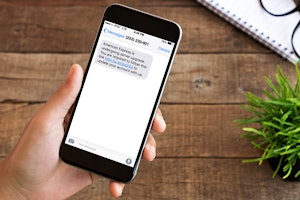
Amex Fraud Text Alert Scams: Spotting a Fraud
If you receive a text message from American Express, don't click on any links or call the phone number listed—it could be a scam designed to steal your information and money.

Fake Verizon Text Messages: How to Avoid a Scam
Verizon may send you text messages from time to time with account updates or data usage alerts, but beware—most of these aren't really from Verizon but scammers.
Guides Relating to Health, Wellness, & Medical Products

The Dangers of Fake THC Vapes Flooding The Market
If the health dangers surrounding vape cartridges weren't bad enough, fake THC vapes containing harmful contaminants are being sold.

Mercury Poisoning From Fish: Is It Really Possible?
It’s pretty much common knowledge that too much fish can result in mercury poisoning. But what is mercury poisoning, and are you really at risk?

Medical Discount Plans: Not the Same as Health Insurance
If you get a call about discount health care programs or discounted medical costs, do your research before signing up or handing over money. Medical discount plans are not a substitute for health insurance.

The Military Diet: How Safe Is It for Weight Loss?
If you're in a hurry to lose weight, the 3-day military diet promises to be the answer to shedding those unwanted pounds fast. But how safe is it really?

Are Supplements Safe? What You Need to Know
Millions of Americans take one or more dietary supplements a day, but what do we really know about these unregulated products?
News Relating to Health, Wellness, & Medical Products

Urgent CDC Warning: Eye Drops Linked to 3 Deaths, Loss of Vision
The CDC is warning eye drops users of a rare bacterial infection from 2 brands of eye drops. The infection is resistant to antibiotics and has resulted in the loss of vision, loss of eyeballs and the death of 3 patients.

Roe vs. Wade Overturned: Abortion Rights in Your State
Find out what the overturning of Roe vs. Wade means for abortion rights in your state.

Banks May Refund More Zelle Scam Victims in 2023
Zelle scams have reached a serious volume. New reports suggest that banks are looking at new refund protections for customers in 2023.

Optus Data Breach - One of the Worst Cyberattacks in Australia
Hackers have gained access to 9.8 million customer records from Optus in Australia, exposing personal information such as driver licence, medicare and passport details.
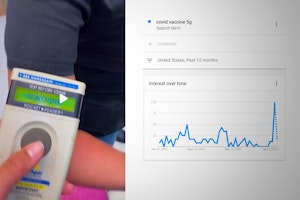
Searches for "COVID Vaccine 5G" Hit All-Time High, But Microchips Definitely Not in Vaccine
The number of people searching for the term "COVID vaccine 5G" on Google has just hit an all-time high, but there's one way to be sure that there are no microchips.




